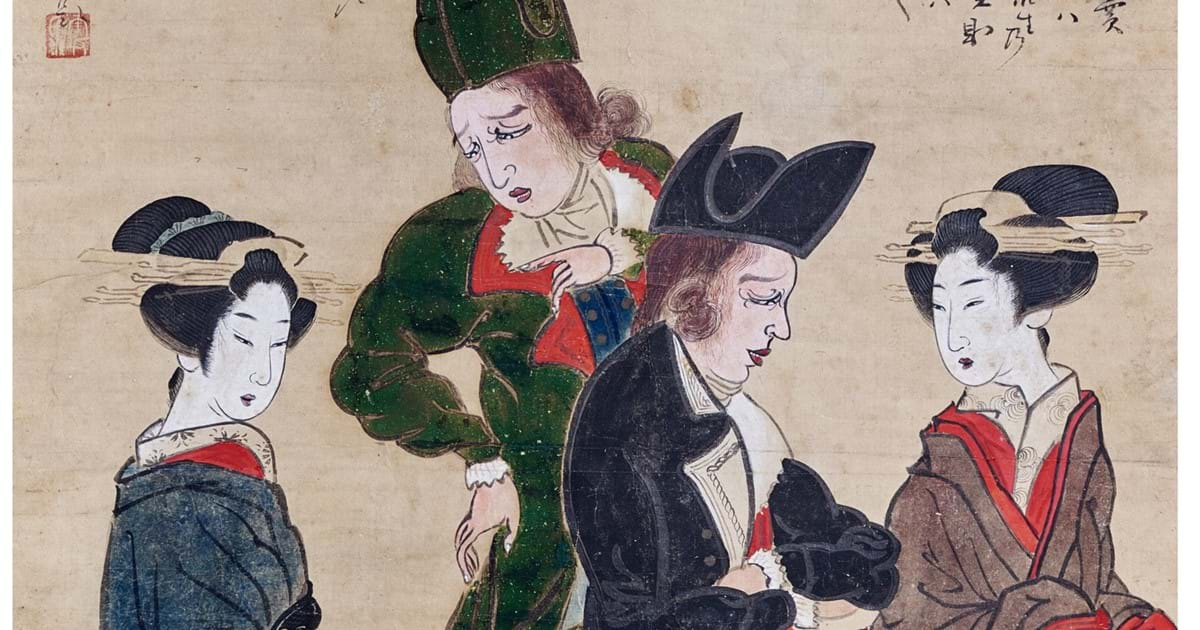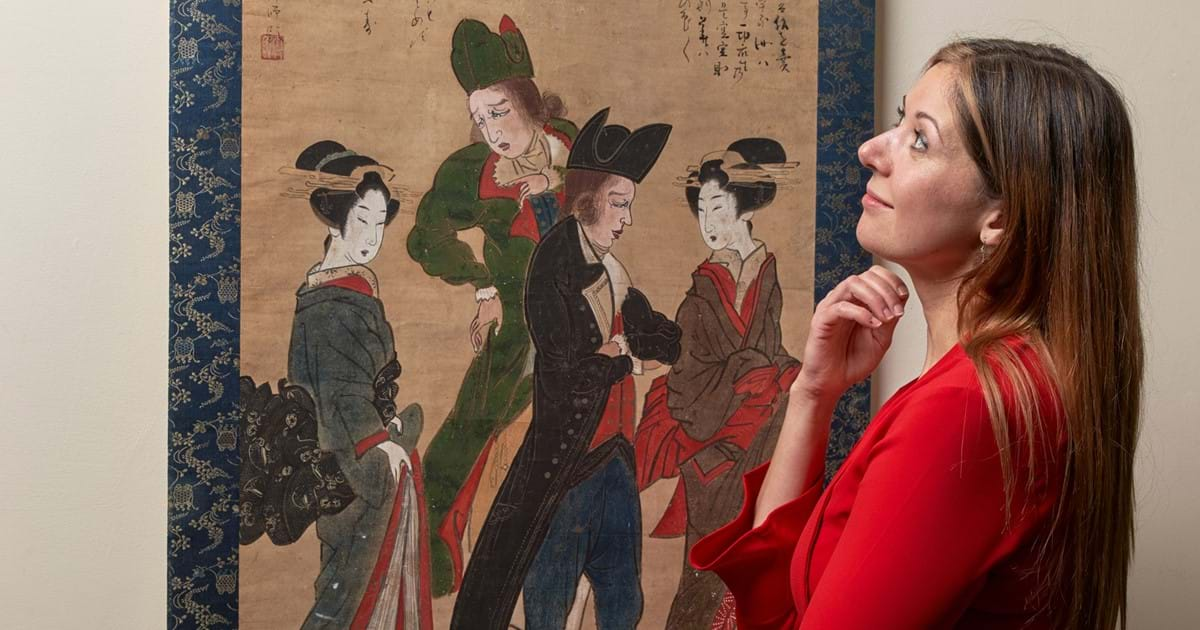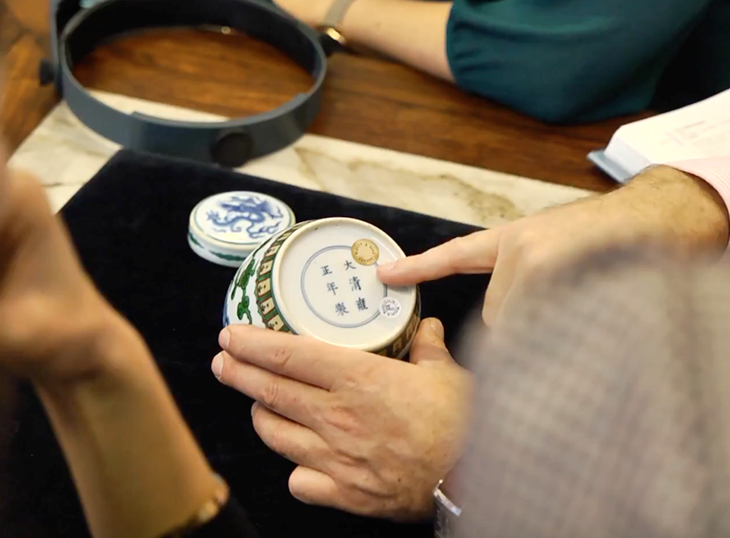Eastern Encounters
16th November 2020An unusual Japanese scroll painting has emerged, which reveals sordid details of the country’s trade links with Holland during the 17th and 18th centuries.
For over 200 years after 1641, Japan traded only with Holland and China, with Dutch merchants confined to their settlement on the artificial island of Dejima in Nagasaki. Regulations were extremely strict and all Japanese families of Dutch traders were exiled, with the result that the Western residents had no access to female company. However, understanding of the needs of their visiting merchant sailors, the Japanese hosts arranged for regular visits by Japanese concubines and brothels were quickly established on the island.
The metre long scroll painting was sold at auction in Salisbury on 7th December and depicts two such prostitutes in conversation with two bare-legged Dutchmen. Known as a “parody” picture, the scroll bears a fake signature of the 16th century artist Great Zen Priest Takuan and includes the words, “Thou sell thy body of five foot, thus satisfying the worldly desires of all creatures”. A further inscription reads, “the moon frequents nightly the surface of the pond but does not leave behind its heart nor its shadow” – a reference to the fleeting relationships experienced by the itinerant Western traders.
“By the time this picture was painted (at the turn of the 19th century) visits by Japanese concubines could last for up to five days,” explained Japanese specialist, Alexandra Aguilar. “Such pleasures did not come cheap and the Dutch clients could expect to pay significantly more for female company than their Chinese equivalents. As a result, the number of privately-registered prostitutes visiting Dejima rose steadily throughout the 18th and 19th centuries, seeking to make a living from these generous Westerners.”
The scroll painting was consigned from a deceased estate in Hampshire and fetched £13,750 in the Japanese Works of Art auction.
“Art works produced for the Dutch market, and relating to Japan’s overseas trade relations prior to the mid 19th century are highly desirable for collectors,” continued Aguilar. “The country operated behind closed doors up until the signing of various trade agreements in the 1850s and so items relating to the West are rare before this time. Although the scroll appears to be an innocent depiction of two couples in conversation, the inscriptions and the historical context lend it an amusingly salacious air, which surely adds to its appeal.”




